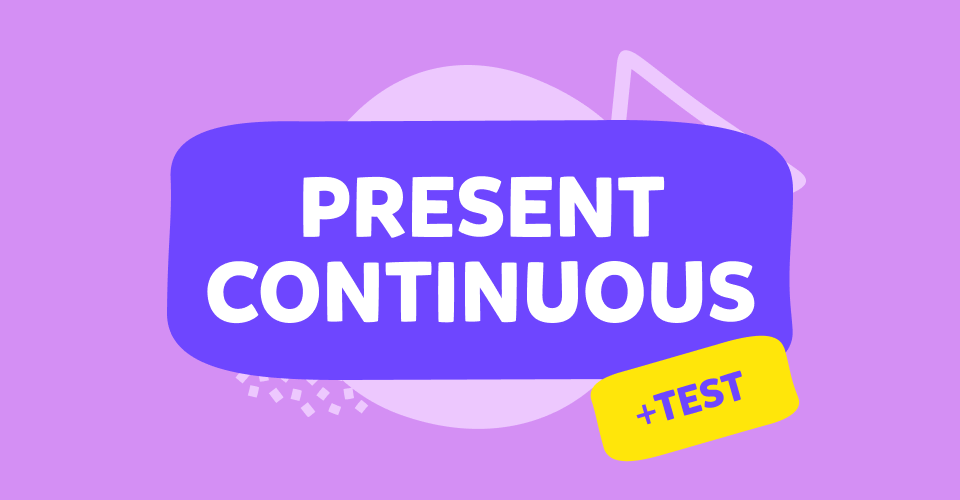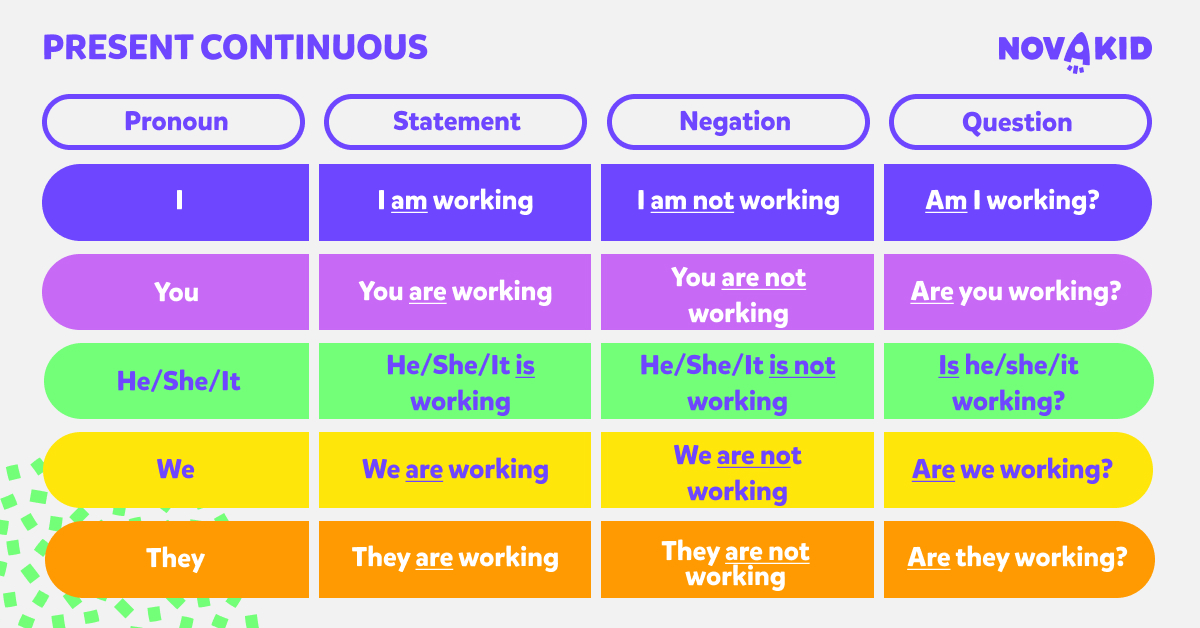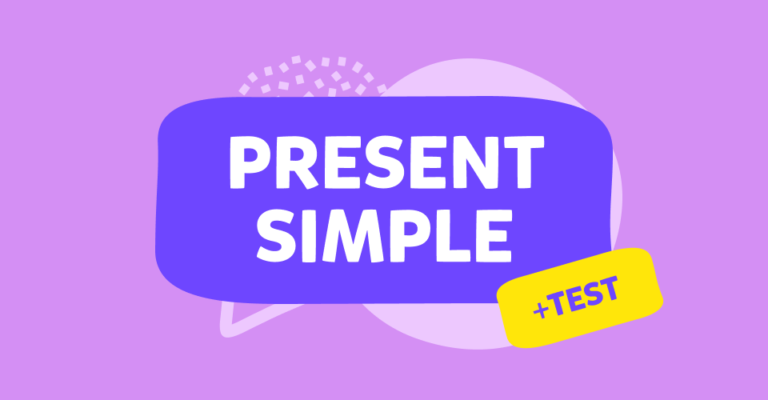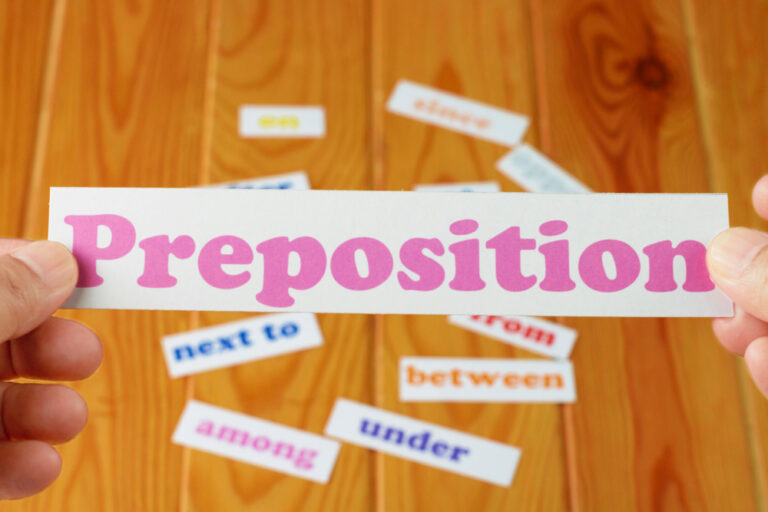In this article, we’ll explain how many verb tenses there are in English and how many of them your kid actually needs to use. We’ll let you know how to recognize English tenses and provide examples of each tense being used in a sentence.
Present Continuous - definition, construction, use, and examples of Present Continuous verb tense
- Definition of Present Continuous
- The use of Present Continuous in English
- How to compose sentences in the Present Continuous?
- How to form sentences in the Present Continuous tense with examples
- How to recognize the Present Continuous tense?
- When to use the Present Continuous? Situational context for this present tense form
- When the present continuous should not be used?
- How to be sure that Present Continuous is the right choice?
- Test your knowledge about Present Continuous
Present Continuous is one of 4 present verb tenses in English grammar. The Present Continuous verb tense indicates that an action or condition is happening now, frequently, and may continue into the future. However, it can be used in many situations, so that’s why today we’ll help you use the Present Continuous tense correctly and understand it generally.
Learn how to build sentences in Present Continuous, what is the definition of Present Continuous verb tense and when to use it in real life situations. Find out examples of sentences in Present Continuous form, as well as Present Continuous exercises and test!
Although verb tenses in English may seem tricky for beginner English learners, with Novakid approach to teaching English, you’ll see that Present Continuous can also become friendly. Soon, you’ll have no problem using it during real-life conversation with English native speakers.
In case you’re worried about confusing Present Continuous and Present Simple verb tenses, no worries. Sometimes, they overlap with each other in meaning, however, in such cases don’t worry – people should understand what you mean using either of the present tenses in English. Just in case, we are going to take a look at comparison of Present Continuous and Present Simple, so you’ll know which one is used to describe which situations.
Definition of Present Continuous
The Present Continuous tense, also known as the Present Progressive tense, is a grammatical form used in the English language to describe ongoing actions or situations that are happening at the present moment. It is formed by using the present tense of the auxiliary verb “to be” (am, is, are) followed by the present participle of the main verb (-ing form).
The use of Present Continuous in English
The primary function of the present continuous tense is to indicate actions that are currently taking place or unfolding in real-time, regardless of their duration. It emphasizes the temporary nature of the action, often implying that it is in progress but not yet completed. Additionally, the present continuous tense can be employed to convey future arrangements or plans that have already been decided.
It’s important to note that the Present Continuous tense is not limited to actions happening at the exact moment of speaking. It can describe ongoing actions occurring around the present time, even if they started before the moment of speaking and may continue after. Furthermore, the Present Continuous tense is not typically used for general truths, habitual actions, or permanent states, as it emphasizes temporary or current activities.
In summary, the Present Continuous tense is a grammatical construction used to express ongoing actions or situations happening at the present time. It highlights the temporary nature of the action and can also denote future plans or arrangements.
How to compose sentences in the Present Continuous?
Present Continuous tense is always composed of a suitable form of the verb “to be”, placed after the subject, and the gerund (which is a form of any verb with the “-ing” suffix added).
The structure of the Present Continuous tense varies depending on the subject of the sentence.
- For singular subjects: “I am” + present participle (e.g., “I am studying for my exam.”)
- For third-person singular subjects “he”, “she”, “it”: “He/She/It is” + present participle (e.g., “She is reading a book.”)
- For plural subjects and the pronouns “you,” “we,” and “they”: “They/You/We are” + present participle (e.g., “We are going to the park.”)
How to form sentences in the Present Continuous tense with examples
Let’s talk about building statements, negations, and questions in Present Continuous verb tense. See examples for each type of sentences below.
Construction of statements in Present Continuous
Singular subject: Subject + am/is/are + present participle (-ing form of the verb)
- Example 1: “I am studying for my exam.”
- Example 2: “She is reading a book.”
- Example 3: “The cat is sleeping on the couch.”
Third-person singular subject: Subject + is + present participle (-ing form of the verb)
- Example 1: “He is playing football with his friends.”
- Example 2: “She is cooking dinner in the kitchen.”
- Example 3: “The sun is shining brightly in the sky.”
Plural subjects and pronouns “you,” “we,” and “they”: Subject + are + present participle (-ing form of the verb)
- Example 1: “We are going to the park.”
- Example 2: “They are watching a movie at the cinema.”
- Example 3: “You are listening to music on your headphones.”
Construction of negations in Present Continuous
Singular subject: Subject + am/is/are + not + present participle
- Example 1: “I am not studying right now; I’m taking a break.”
- Example 2: “She is not attending the meeting; she is on vacation.”
- Example 3: “The dog is not barking; it’s sleeping peacefully.”
Third-person singular subject: Subject + is + not + present participle
- Example 1: “He is not working today; he has the day off.”
- Example 2: “She is not wearing a jacket because it’s warm outside.”
- Example 3: “The computer is not responding; there might be a technical issue.”
Plural subjects and pronouns “you,” “we,” and “they”: Subject + are + not + present participle
- Example 1: “We are not going to the party; we have other plans.”
- Example 2: “They are not studying for the test; they are playing video games.”
- Example 3: “You are not listening to me; you are distracted.”
Construction of questions in Present Continuous
Singular subject: Am/Is/Are + subject + present participle?
- Example 1: “Are you studying for the exam?”
- Example 2: “Is she coming to the party tonight?”
- Example 3: “Am I interrupting you?”
Third-person singular subject: Is + subject + present participle?
- Example 1: “Is he working on a new project?”
- Example 2: “Is she eating lunch right now?”
- Example 3: “Is it raining outside?”
Plural subjects and pronouns “you,” “we,” and “they”: Are + subject + present participle?
- Example 1: “Are we going to the beach this weekend?”
- Example 2: “Are they watching a movie at the theater?”
- Example 3: “Are you enjoying the party?”

How to recognize the Present Continuous tense?
Recognizing the Present Continuous tense in English is easier than you might think. One characteristic feature is the use of the present tense of the verb “to be” (am, is, are) followed by the present participle (-ing form) of the main verb.
To make it even simpler, there are some common adverbs that often accompany the Present Continuous tense, providing clues to help identify it. These adverbs include “now,” “at the moment,” “currently,” “right now,” and “temporarily.” Let’s see some examples:
- “I am studying now for my exam.” – The adverb “now” indicates that the action of studying is happening in the present moment.
- “She is currently working on a project.” – The adverb “currently” suggests that the action of working is ongoing at this time.
- “They are temporarily living in a hotel.” – The adverb “temporarily” signifies that the action of living in a hotel is temporary and happening now.
When to use the Present Continuous? Situational context for this present tense form
Situational context is another clue for recognizing the Present Continuous tense. It is often used to describe actions or situations that are happening right now or are in progress at the moment of speaking. It emphasizes the temporary nature of the action and implies that it is ongoing, but not necessarily completed. Some common situational contexts where the Present Continuous tense is used include:
- Something that is taking place at the moment of speaking:
- “He is listening to some music now.”
- “We are currently having dinner.”
- “They are singing perfectly right now.”
- Something that is planned for the near future:
- “I am going out tonight.”
- “She is leaving for London tomorrow.”
- “They are arriving at noon.”
- Something that is happening before and after a specific point in time:
- “At 5 o’clock they are drinking tea.”
- “We are sleeping at midnight.”
- “I am bathing right now.”
- Something which seems to be temporary:
- “He is staying just for the night.”
- “I am working only this evening.”
- “The kids are playing for now.”
- Something that is new:
- “People are now using smartphones to search the Internet.”
- “Why do people wear bandanas all of a sudden?”
- “The market crashed, and people are losing money.”
- Something which is changing, growing, or evolving:
- “The climate is changing.”
- “Your English is improving.”
- “This plant is growing so fast.”
7. Something that is happening again and again, perhaps with annoying regularity:
- “You are always forgetting your keys.”
- “It is always raining here.”
- “I am always losing in chess.”
The Present Continuous tense may also be used while telling a story or giving an account of a book, a movie, or a play.
When the present continuous should not be used?
It is not the right choice when speaking of something that happens regularly or periodically or has just occurred and it is no more. Also, it is not used with the verbs connected to thinking and feeling, such as: believe, dislike, know, like, love, hate, prefer, realise, recognise, remember, suppose, think (in the sense of to believe), understand, want, wish.
Other verbs that should not be used with present tense include: appear, feel, look, seem, smell, sound, taste (which are all verbs related to senses) and agree, be, belong, disagree, need, owe, own, possess (except that “to be” is sometimes used in present to express a state person is in). These verbs are used in the present simple, if you want to speak about the present.
How to be sure that Present Continuous is the right choice?
If you want to express something that happens at the moment or the nature of such activity is continuous or you are simply telling a story, you may be pretty sure you want the Present Continuous tense to appear in the sentence.
However, the Present Continuous tense should not be used in certain contexts, and it can be helpful to compare it to the Future Simple and Present Simple to understand when to use them instead. Note that, if there is a verb related to thinking, feeling, or sensing anything, it is most likely that Present Simple is a better choice.
When the Present Continuous should not be used?
When discussing future events that are planned or scheduled, the Future Simple tense is more appropriate. For example, “I am going to the party tomorrow” should be “I will go to the party tomorrow.” The Future Simple tense indicates a specific future action.
On the other hand, when expressing general truths or habitual actions, the Present Simple tense is preferred over the Present Continuous tense. Stative verbs, which describe states or conditions, are often used in the Present Simple tense.
For instance, instead of saying “I am loving chocolate,” we say “I love chocolate” because it expresses a general truth. Similarly, instead of saying “He is understanding the concept,” we say “He understands the concept” as it describes a habitual understanding. The Present Continuous tense is most suitable for describing ongoing actions happening at the present moment.
Present Continuous and Simple Present and Future compared
Here are examples of sentences demonstrating the appropriate use of Future Simple and Present Simple instead of the Present Continuous tense.
- Present Continuous vs. Future Simple:
- Incorrect: “I am going to the beach next weekend.”
- Correct: “I will go to the beach next weekend.”
Explanation: The Future Simple tense (“will go”) is used here because the action of going to the beach is a planned future event.
- Present Continuous vs. Present Simple:
- Incorrect: “I am understanding the concept.”
- Correct: “I understand the concept.”
3. Explanation: The Present Simple tense is used (“understand”) because understanding is a state of knowledge, not an ongoing action.
- Incorrect: “She is hating broccoli.”
- Correct: “She hates broccoli.”
4. Explanation: The Present Simple tense (“hates”) is used here because “hating” describes a general dislike for broccoli, not an ongoing action.
- Incorrect: “He is having a new car.”
- Correct: “He has a new car.”
Explanation: The Present Simple tense (“has”) is used here to indicate possession of a new car, which is a state or condition.
Test your knowledge about Present Continuous
Here’s a simple test to check your knowledge of the correct use of Present Continuous verb tense in English. Each question consists of a sentence where you need to select the correct answer (a, b, or c). The sentences are designed to test your understanding of the Present Continuous tense. test your knowledge now!
Hey, what are your test results? Did you get all the answers right and your knowledge of Present Continuous verb tens has improved? Remember that with regular practice your English communication level will improve, and recognising and using the correct tense will allow you to speak clearly! Find out other ways to improve English language skills with native speaker teachers at Novakid, who transform each English lesson into an amazing adventure for your kids.
Did you like the content?
Master the Present Simple Tense! Explore its usage in sentences, from A to Z. Enhance your skills with online quizzes and exercises at the end of the article.
Learn about prepositions in English grammar with our fun and educational article for parents and kids. Check out the video with prepositions rules.
From articles to double negatives - these are the most common mistakes for ESL students and practical tips from a teacher on how not to make them.
From the confusion with grammar rules to challenges with oral comprehension - we explain what are the most common mistakes students may have while learning English and give some advice on how to avoid them.
In this article, we will explain what the Future Simple tense is and when it is used in real life situations, with examples!










































